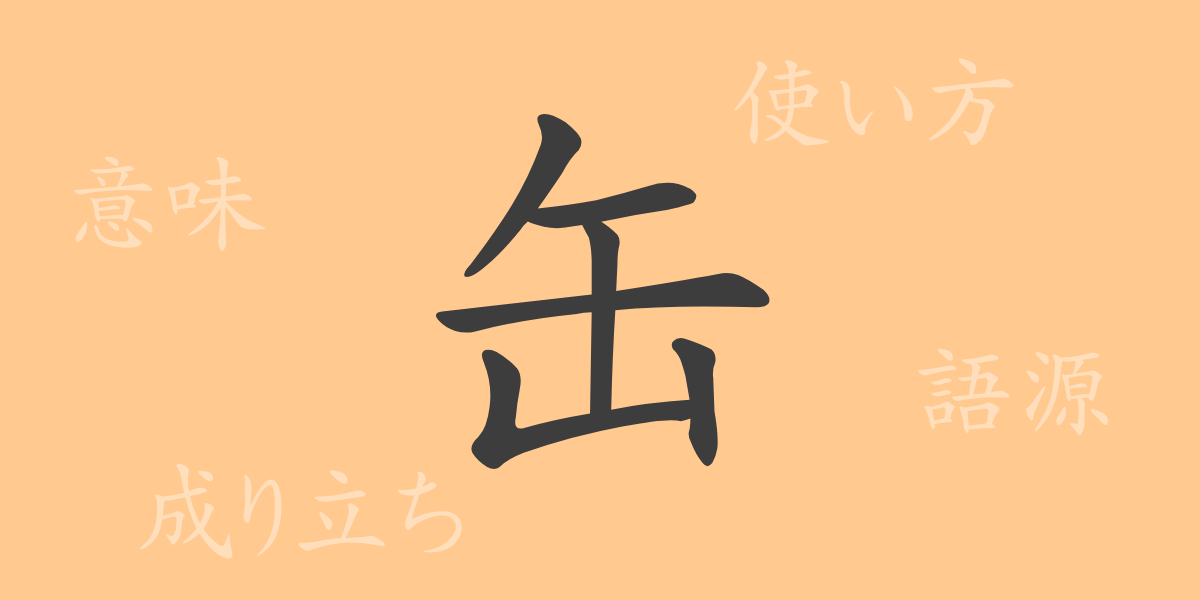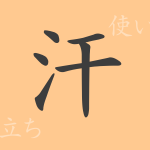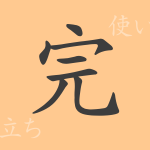Everyday items we take for granted, like “cans,” hold a long history and are imbued with many meanings. In this feature, we’ll shine a spotlight on the kanji “缶” (Kan), a commonly used character in Japan, exploring its origins, meanings, and usage, as well as phrases and idioms that include it, delving deeply into the subject.
The Origin of 缶 (Kan)
The character “缶” (Kan) originated in ancient China as a pictograph representing a container made by processing metal. It referred to metal-made wine vessels and food containers, and while the shape may have been different from modern cans, the fundamental meaning of a container has been consistently maintained.
Meaning and Usage of 缶 (Kan)
In modern Japanese, “缶” (Kan) typically refers to a sealed container made of metal or plastic. A variety of products, including drinking water, food, and paint, are packaged and sold in cans. Furthermore, “缶” (Kan) can combine with adjectives or other nouns to create new meanings.
Readings, Number of Strokes, and Radical of 缶 (Kan)
There are several ways to read “缶” (Kan), which vary depending on the context.
- Readings: The on’yomi (Chinese reading) is “かん” (kan), and the kun’yomi (Japanese reading) is “かま” (kama).
- Number of Strokes: “缶” (Kan) has 6 strokes.
- Radical: The radical for “缶” (Kan) is “缶部” (Kannbu).
Idioms, Phrases, and Proverbs Using 缶 (Kan) and Their Meanings
There are various idioms and phrases that include “缶” (Kan), such as:
- 缶詰 (Kanndume): The act of preserving food or other items in a metal sealed container, as well as the container itself or the preserved contents.
- 缶切り (Kannkiri): A tool used to open the lid of a canned product.
- 缶コーヒー (Kan-nko-hi-): Coffee beverage that has been heat-treated and packaged in a can.
- 空き缶 (A-ki-kann): An empty can after its contents have been used.
Conclusion on 缶 (Kan)
“缶” (Kan) is an item intimately connected to our daily lives, with its presence ranging from ancient times to the modern era for a wide array of uses. With commonly used terms like canned goods and canned coffee, we can re-recognize the importance of this single character. “缶” (Kan) will undoubtedly continue to be an indispensable item in our lives, maintaining its status well into the future.

























